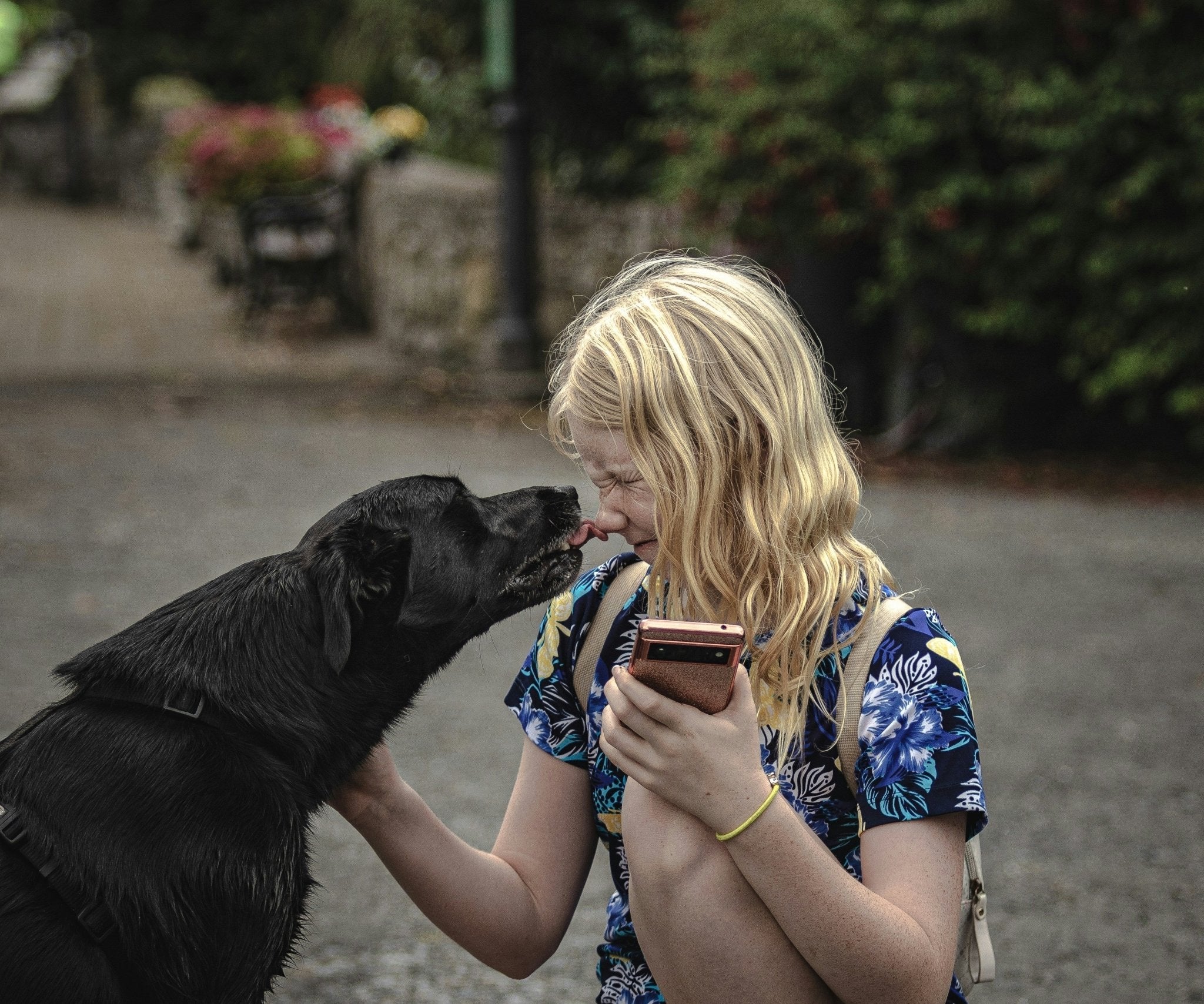Should You Let Your Dog Kiss You? What's Included In Those Slobbery Smooches

💖Valentine’s Day is all about love, and for many of us, that includes our four-legged companions. But while a big, wet kiss from your dog might seem like the ultimate sign of affection, have you ever wondered whether it’s actually safe? Let’s take a closer look at what’s really in a dog’s mouth and whether those enthusiastic kisses come with more than just love.
What’s Hiding in Your Dog’s Mouth?
Dogs spend a good chunk of their day sniffing, licking, and exploring the world including things we’d rather not think about (litter, animal droppings, and who knows what else!). Naturally, their mouths are teeming with bacteria, viruses, and germs that aren’t part of our immune system’s usual line-up.
Some of these bacteria are zoonotic, meaning they can be passed from animals to humans. Common culprits include:
- Clostridium, E. coli, and Campylobacter – These bacteria can cause nasty stomach upsets and gastroenteritis.
- Pasteurella multocida – A normally harmless bacterium in dogs, but in rare cases, it has led to meningitis in infants.
- Haemophilus aphrophilus – Linked to serious infections in humans, including brain abscesses and heart inflammation.

For most healthy adults, a dog lick is unlikely to cause problems. However, young children, the elderly, and people with weakened immune systems are more at risk of infection.
The Rare But Known Risks
While infections from dog licks are uncommon, they can happen. Take, for example, a lady who nearly died from septicaemia after her dog’s bacteria entered her bloodstream—without a single bite or scratch. Applying sense and logic we know that cases this are rare but highlight why it's best to be thoughtful.
Another example. Tapeworm infection caused by swallowing tapeworm eggs sometimes present in dog faeces. We noted earlier that dogs are drawn to eat and smell all sorts of unmentionables. Not exactly the kind of Valentine’s surprise you or your children want from a doggy lick!

Should You Let Your Dog Lick Your Face?
For most people, a little dog kiss isn’t a big deal, but there are some simple ways to stay safe:
- Avoid letting your dog lick your mouth, nose, or eyes, where bacteria can enter more easily.
- Keep dog licks away from open wounds or broken skin to reduce infection risks.
- If you have a weakened immune system, you’ll have your own guidance but dog kisses to the face and mouth are usually best avoided.
- Wash your hands (and maybe your face!) after a particularly enthusiastic doggy smooch.
At the end of the day, dog kisses are a personal choice. If you’re comfortable with it, go ahead but maybe stick to air kisses or a scratch behind the ears instead of full-on face licking. After all, love comes in many forms and some are a little less slobbery!

-
Posted in
Amino Acids Taurine and L-Carnitine, Canine Digestion, Competition dogs, Competitions, Crufts, Dog Agility, Dog Anxiety, dog bad breath, dog dental, Dog diarrhoea, Dog digestion, Dog dull coat, Dog eyesight, Dog health, Dog Immune diseases, dog itchy skin, dog joint pain, Dog stinky breath, dog teeth, Dog vomiting, Dogs and children, dogs teeth cleaning, Feeding, Health, Superbiotic for dogs










